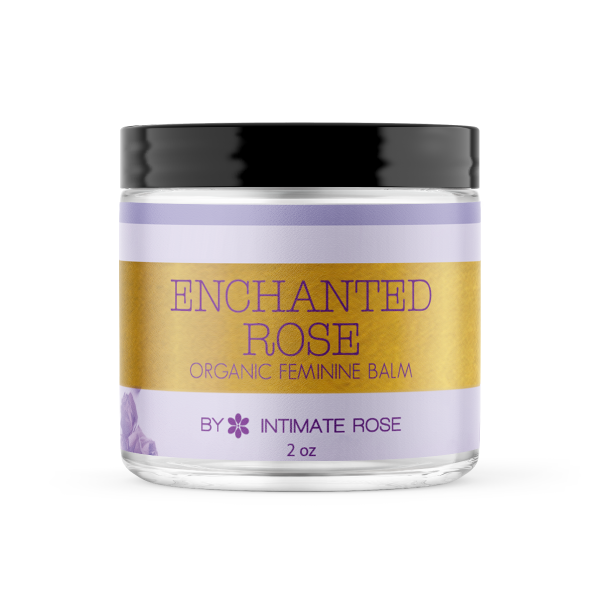Hormones are vital chemicals that carry messages throughout the body to instruct tissues, organs, and internal body systems what to do. Due to their important role, the slightest hormonal imbalance can result in side effects for the entire body.
In this article, we’ll cover all you need to know about hormonal imbalance in women, including symptoms, causes, and the best treatment options available.
The Importance of Balanced Hormones
Produced by glands in the endocrine system, hormones are essential messengers continually traveling through the bloodstream to alert tissues, cells, and organs of their roles in keeping the inner body systems regulated and functioning at optimal levels.
For example, hormones help to regulate women’s growth and development, their metabolism, moods, blood pressure, and blood sugar levels, as well as reproduction cycles, and stress levels. Thus, any tiny change in the production of female hormones can cause discomfort, pain, and interruptions to daily life.
Symptoms of Female Hormonal Imbalance
Symptoms of female hormonal imbalance can vary from woman to woman, but will generally include one or more of the following.
- Mood swings
- Lower back pain
- Breast Tenderness
- Irregular menstrual cycles
- Low libido
- Night Sweats
- Hot flashes
- Sudden weight gain or weight loss
- Vaginal dryness
- Insomnia
- Brittle bones
- Excessive hair growth
- Urinary incontinence
- Brain fog
- Memory loss
What Causes Hormonal Imbalance in Women?
Causes of hormonal imbalance in women will depend on which hormones are affected. For example, it is perfectly normal for female hormones like estrogen and progesterone to fluctuate at various times in a woman’s life due to puberty, menstruation, pregnancy, childbirth, and menopause.
Besides these natural fluctuations of the female hormones, which usually rebalance over time, additional causes of female hormonal imbalance include the following:
Primary Ovarian Insufficiency
Primary Ovarian Insufficiency (POI), also known as premature menopause, occurs when the ovaries cease functioning before a woman reaches the age of 40. This condition is usually due to a decrease in the production of estrogen and normally signals the start of irregular menstruation as the body prepares to transition into early menopause.
Polycystic Ovarian Syndrome
Polycystic ovarian syndrome (PCOS) is when the ovaries produce abnormally high levels of a male hormone called androgens, which results in less ovulation. Approximately 15% of women aged between 20 and 30 are diagnosed with PCOS each year. This imbalance of the reproductive hormones can lead to symptoms like irregular menstruation, acne, infertility, and excess hair growth.
Thyroid Issues
An underactive or overactive thyroid can develop due to aging, as a result of medication, an autoimmune condition, or undiagnosed tumors. Women are twice as likely as men to experience hormonal imbalance derived from thyroid problems, and while it can occur at any age, it is more common in women aged over sixty.
When the thyroid gland produces too few hormones it is referred to as hypothyroidism and when it produces excess hormones it is called hyperthyroidism.
Too Much Stress
Medical practitioners in the US revealed that female patients typically begin to report signs of stress as early as 36 years old. When the body feels stressed it produces high levels of ‘stress hormones’ such as cortisol and noradrenaline, which in turn affect every other hormone in the body, causing possible reproductive hormonal imbalance as well as a thyroid imbalance.
The imbalance caused by an overproduction of stress hormones can result in insomnia, anxiety, depression, and panic attacks.
Eating Disorders
Eating disorders like anorexia, bulimia, and binge eating can all be a cause of hormonal imbalance in women. These changes in hormone levels are a direct response to the body experiencing starvation and trying to conserve energy.
In young girls, the hormonal imbalance caused by eating disorders can result in weak bones, stunted growth, and possible osteoporosis later in life. For women in their reproductive years, hormonal imbalance can affect metabolism, fertility, and pregnancy.
Birth Control
Certain types of birth control contain small amounts of female hormones and this additional amount can create an imbalance when added to the naturally produced hormones in the body.
In this situation, women might experience irregular menstruation, weight gain, breast tenderness, and digestive issues. It is widely suggested to speak with your doctor about a different type of birth control pill should any of the above symptoms occur.
Sometimes, when women cease using contraceptive, they may also experience a temporary imbalance to their hormones until natural production resumes.
Diagnosing Hormonal Imbalance in Women
According to women’s health experts, the best way to treat female hormonal imbalance is to determine the root cause. If you suspect you may be suffering from hormonal imbalance, take note of your symptoms for two or three menstrual cycles and make an appointment to discuss them with your doctor.
Depending on your symptoms, your doctor may perform a blood test to check your thyroid and hormonal levels, and they might also carry out a pelvic exam to check for anything unusual like cysts or lumps.
Natural Remedies for Hormonal Imbalance in Women
Once the root cause of the hormonal imbalance is determined, women are in a better position to consider treatment options. While there are various medical treatments available for the more serious conditions, women going through natural hormonal fluctuations during menstruation, perimenopause, or menopause, for example, might prefer to try natural remedies first to avoid taking ongoing medications.
Herbs
Herbs like black cohosh, red clover, and ginseng are highly recommended by holistic practitioners to treat menopausal symptoms like hot flashes, irritability, anxiety, and insomnia.
Supplements
A supplement from women’s health experts, Intimate Rose, called Myo-Inositol & D-Chiro Inositol was specifically designed to promote hormonal balance for PCOS patients, as well as perimenopausal and menopausal women. With added ashwagandha and vitamin D for improving moods and anxiousness, this supplement also helps to reduce stress.
Read: 7 Best Supplements to Balance Hormones in Women
Lifestyle Changes
Exercising regularly, eating a nutritious diet of whole foods, and maintaining a healthy body weight can all significantly help to manage women’s hormonal imbalance, as well as improve their overall health.
Moisturizing the skin will keep dryness at bay and washing the face, neck and upper back with over-the-counter acne washes can help to keep skin problems to a minimum.
Reducing stress with daily mindful practices such as yoga and meditation also helps to manage the mood swings and anxiety caused by hormonal imbalance in women.
Medicinal Treatment for Hormonal Imbalance
Depending on the cause of the hormonal imbalance, medical treatment will vary. Below are some of the suggested treatments for the most common causes of hormonal imbalance.
Birth Control
Although birth control can cause hormonal imbalance in some women, they can help to regulate imbalance in others. For women experiencing irregular periods and severe acne who are not trying to get pregnant, for example, birth control, patches, shots, or IUDs can be helpful to regulate hormonal imbalance.
Vaginal Estrogen
Hormonal imbalances that cause vaginal dryness, insomnia, or mood swings due to a decrease in estrogen are most common in perimenopause and menopausal women. In these cases, a vaginal estrogen cream can help to rebalance hormones and relieve the associated symptoms.
Hormone Replacement Medication
After blood tests have been performed and the imbalance has been identified, specific hormone replacement medications are prescribed by doctors to treat each patient’s symptoms.
Hormonal and Non Hormonal Menopause Relief

Anti-Androgen Medication
This type of medication is used to decrease the production of the male sex hormone, androgen, which is common in PCOS patients. It also reduces excessive hair growth and helps with severe acne.
Conclusion
Should you experience any of the above symptoms for an extended time, especially any that cause enough discomfort to interfere with everyday life, consult with your health practitioner about the possibility of hormonal imbalance and the best treatment plan for you.
While medications are available, it is largely recommended to try natural remedies and lifestyle changes first. However, it is always advisable to consult with your doctor before trying any new supplements.

Get your personalized HRT plan!

Get your personalized HRT plan!
References
Endocrine Society – Primary Ovarian Insufficiency - https://www.endocrine.org/patient-engagement/endocrine-library/primary-ovarian-insuffiency
Women’s Health - Polycystic Ovary Syndrome - https://www.womenshealth.gov/a-z-topics/polycystic-ovary-syndrome
Medline Plus – Hyperthyroidism, aka Overactive Thyroid - https://medlineplus.gov/hyperthyroidism.html
National Institute of Diabetes and Digestive and Kidney Diseases – Hypothyroidism (Underactive Thyroid) - https://www.niddk.nih.gov/health-information/endocrine-diseases/hypothyroidism
National Center for Biotechnology Information – Stress and Hormones https://www.ncbi.nlm.nih.gov/pmc/articles/PMC3079864/
Women’s Health – Menopause - https://www.womenshealth.gov/menopause/menopause-basics

Get your personalized HRT plan!












